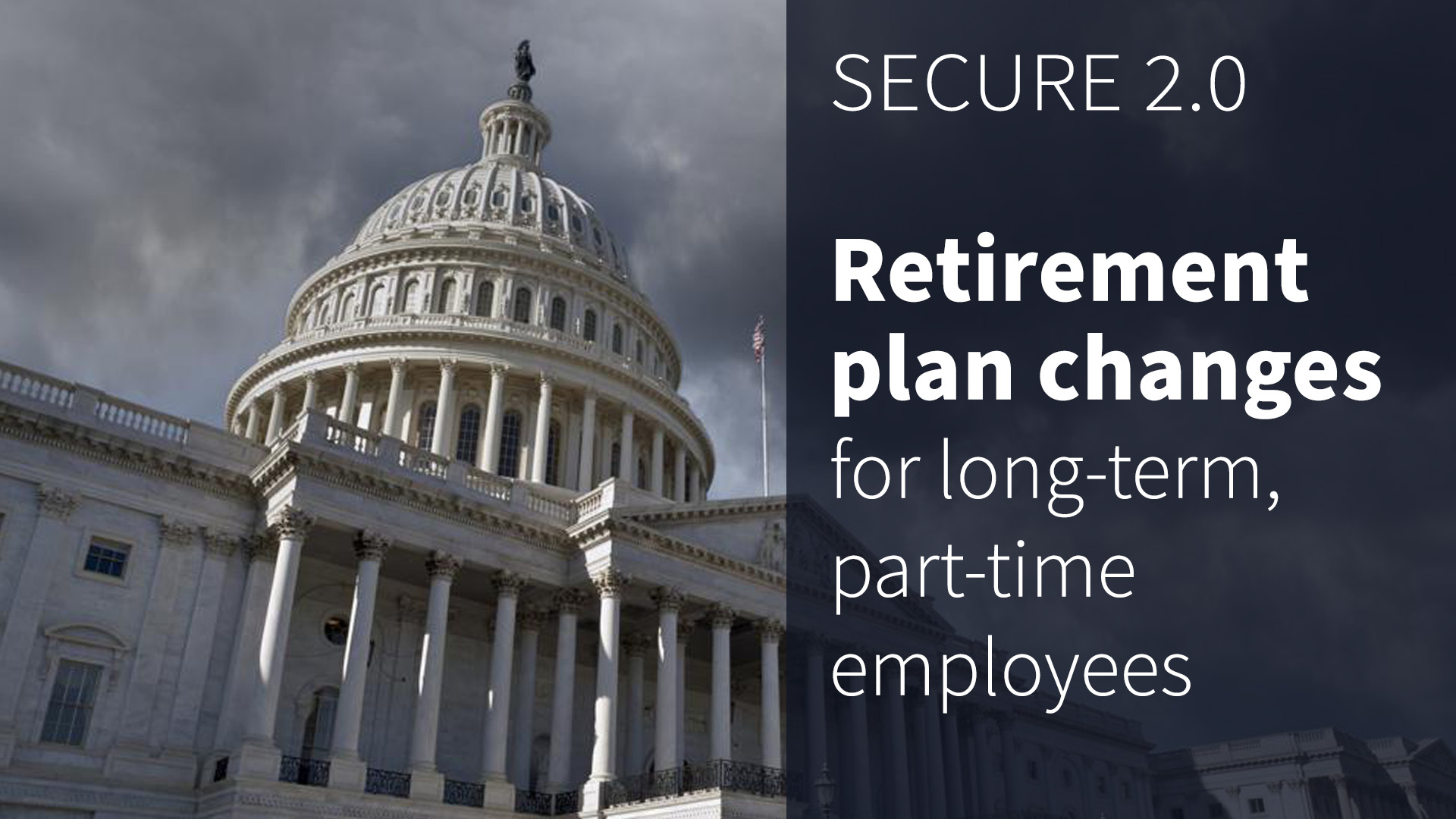For years, 401(k) plans have been able to follow the ERISA statutory provision that permits excluding employees who work less than 1,000 hours per year (generally less than 20 hours a week).
As part of both the SECURE 1.0 and 2.0 legislation, Congress addressed concerns about the historic exclusion of long-term, part-time employees who work for employers without the benefit of retirement plan coverage and created a new category of participant.
Effective January 1, 2024, new eligibility rules for 401(k) enrollment will apply to what Congress has referred to as Long Term Part Time (LTPT) employees (defined below). These new eligibility requirements will not affect plans that do not offer 401(K) deferrals.
The new eligibility rules for LTPT employees stipulate that employees who complete 2 consecutive years of service of at least 500 hours must be permitted to make salary deferrals in a 401(k) plan. (Note: Years of service are defined by a 12-consecuttive month period during which an employee completes at least 1,000 hours of service).
These new rules are being implemented over a 2-year period:
- For 2024, the requirement for enrollment is 3 consecutive years of at least 500 hours. The measurement for this requirement began in 2021.
- For 2025, the requirement is reduced to 2 consecutive years of at least 500 hours.
- 403(b) Plans are not subject to LTPT rules until January 1, 2025
What this means for employers with existing 401(k) plans:
- LTPT employees must be offered the opportunity to make 401(k) deferrals in the plan thru payroll deduction.
- Employers not required to provide safe harbor matching or non-elective contributions to LTPT employees unless the plan is otherwise amended to do so.
Action items for Employers that have LTPT employees are:
- Review your plan’s eligibility rules to determine the best way to integrate these changes into your plan.
- Review hours history of the last 3 years starting from 2021, for current employees who may be eligible to participate in your plan effective January 1, 2024. Employees identified as LTPT employees need to be given the opportunity to enroll in the plan to make salary deferrals.
- Review your payroll system, if your plan matches contributions on a payroll basis, and identify newly eligible LTPT employees you do not want employer contributions calculated for.
Contact PKS for help with the following:
- Review of your plan’s eligibility provisions to simplify hours tracking.
- Identifying LTPT employees who have 3 consecutive years of at least 500 hours.
- Cover your LTPT employees for Employer contributions.
- Remove exclusions of interns or short-term employees.
PKS & Company, P. A. is a full service accounting firm with offices in Salisbury, Ocean City and Lewes that provides traditional accounting services as well as specialized services in the areas of retirement plan audits and administration, medical practice consulting, estate and trust services, fraud and forensic services and payroll services and offers financial planning and investments through PKS Investment Advisors, LLC.
© Copyright 2024. All rights reserved.
Brought to you by: PKS & Company, P.A.





